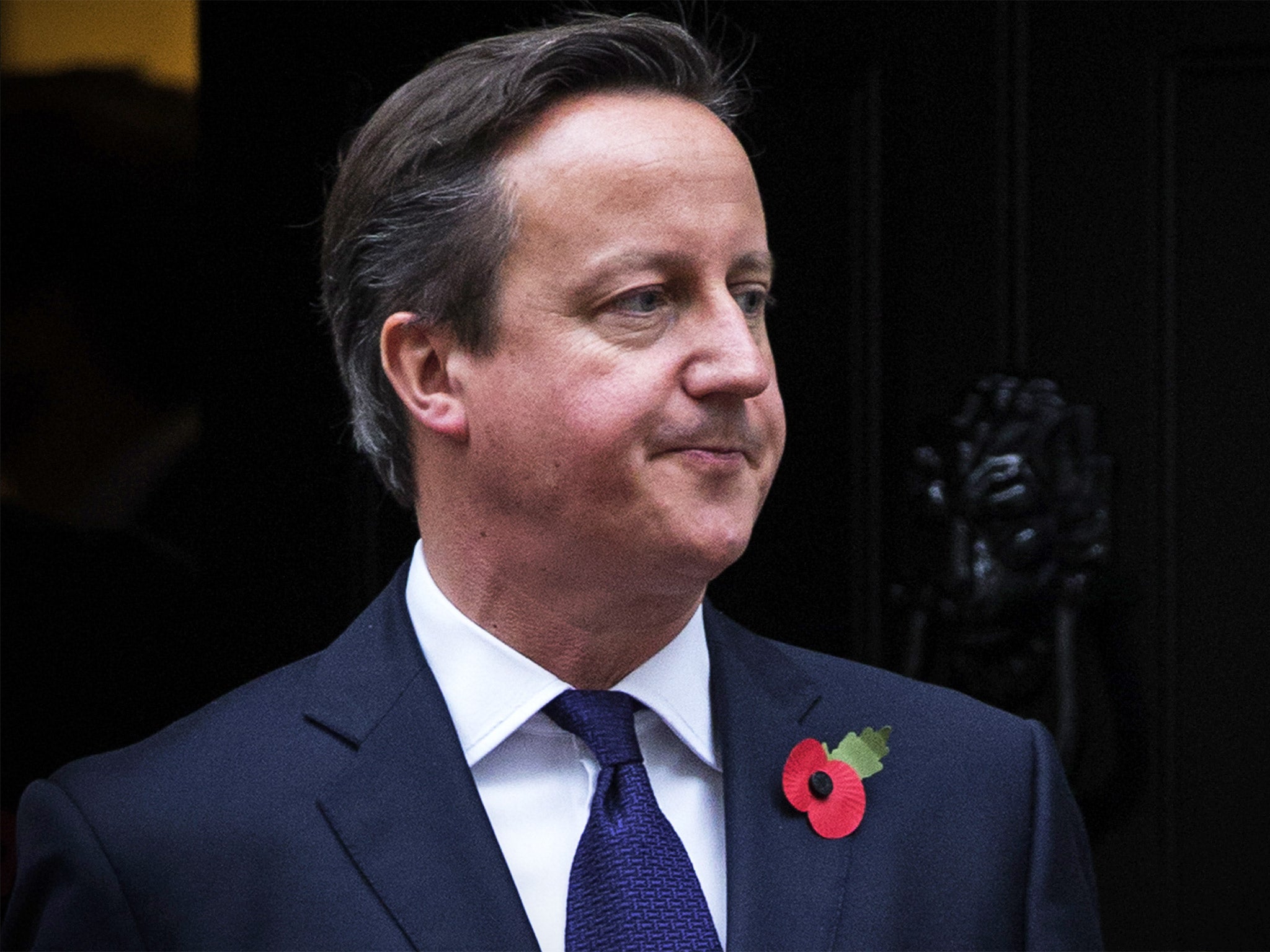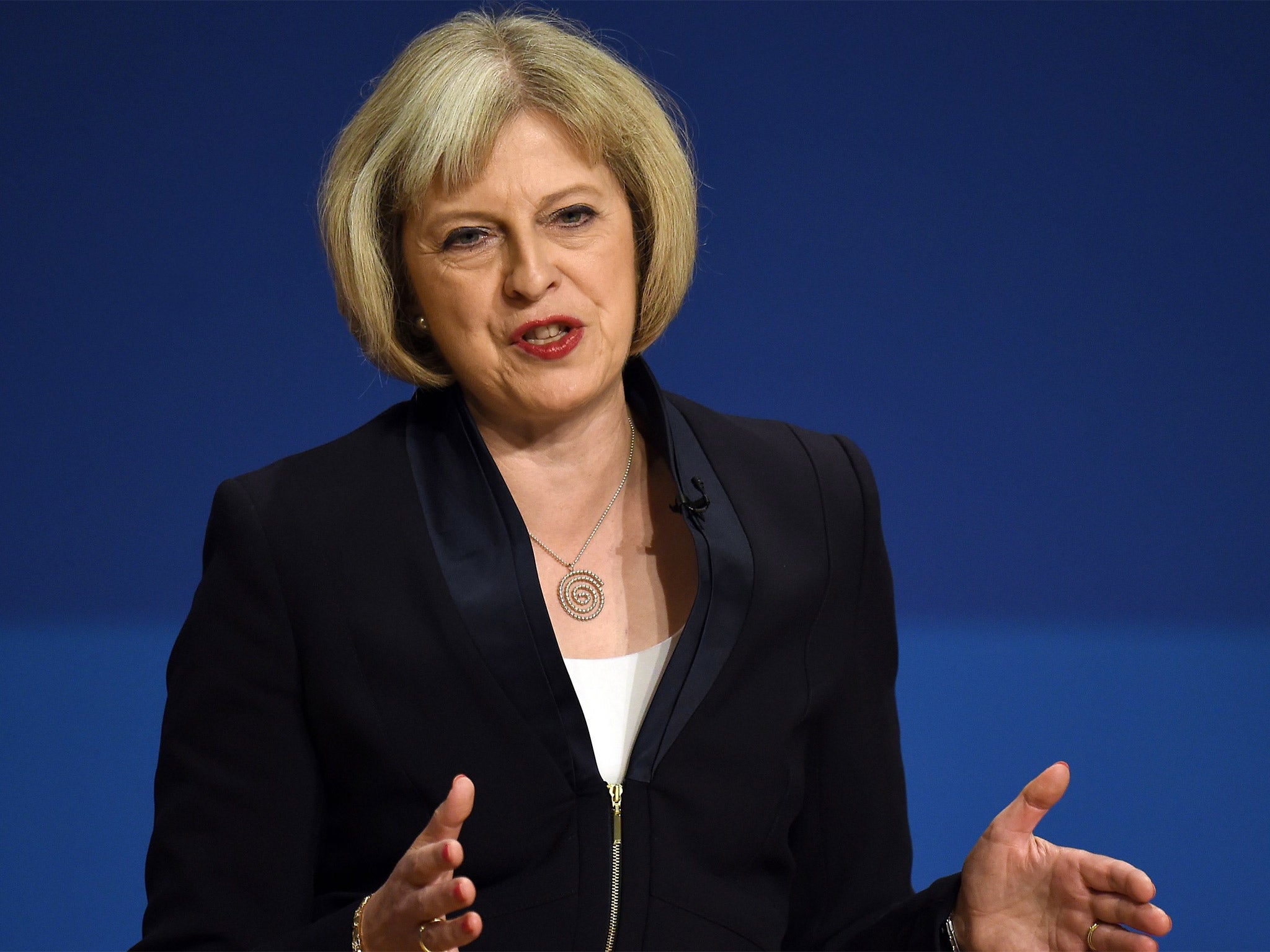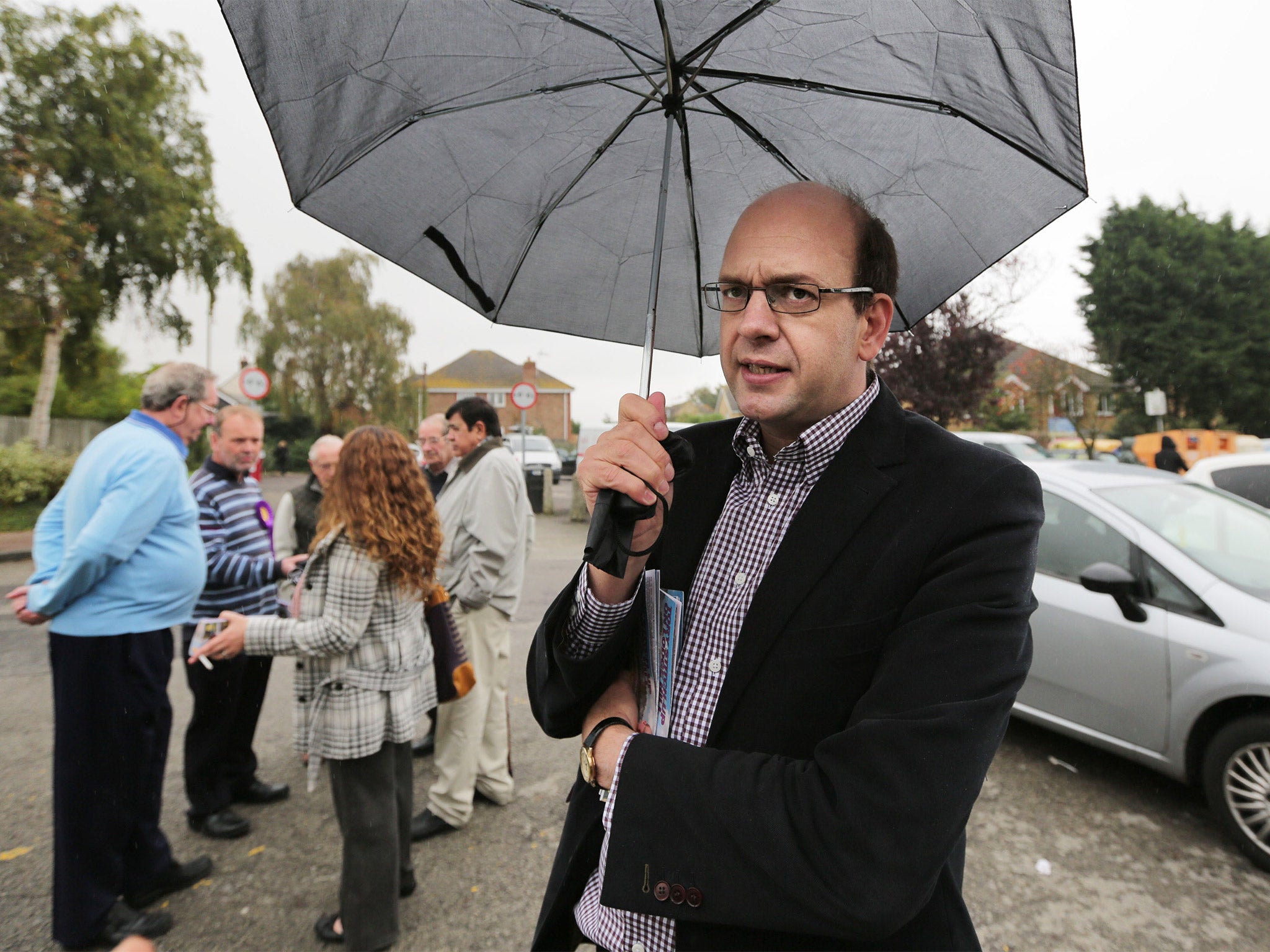David Cameron risks backbench rebellion by granting vote on European Arrest Warrant
Home Office makes strident defence of legislation

David Cameron is to risk a damaging Euro-rebellion from scores of Tory MPs just days before the Rochester and Strood by-election, in which the Conservatives are struggling to avert defeat by Ukip.
The Prime Minister took the Commons by surprise today by announcing a vote on the European arrest warrant would take place ahead of the by-election on 20 November.
Mr Cameron faces a rebellion by up to 100 of his MPs on the issue, which would leave with the embarrassment of relying on Labour and Liberal Democrat support for a majority. However, Theresa May, the Home Secretary, has launched a concerted drive to halve the size of the revolt.
She insists that continued participation in the arrest warrant system is essential to prevent Britain from becoming a “honeypot” for foreign criminals.
To support her case, the Home Office has released details of a nationwide operation to track down suspected foreign criminals in this country. It said more 1,000 than had been detained, including 25 who had been picked up on arrest warrants.
But Tory opponents argue the warrant is cumbersome and bureaucratic and can lead to the deportation of UK nationals on minor or flimsy charges.

Mr Cameron had been expected to delay the vote until after the by-election to avoid damaging headlines over a Tory revolt ahead of polling. His decision will be widely interpreted as evidence the Conservatives are resigned to losing Rochester and Strood to their former MP Mark Reckless, who is now standing under Ukip colours. Recent polls suggest Nigel Farage’s party is heading for victory in the Kent constituency.
His announcement also kills off speculation that Downing Street is wavering over the warrant, which is one of 35 European criminal justice and policing measures that Britain is due to opt back into on 1 December while opting out of another 100 measures on the same day.
Mr Cameron told MPs the measure was necessary “to keep Britain safe” and insisted it had been overhauled to prevent miscarriages of justice.
“You cannot now be extradited for something that isn’t a crime in Britain. Judges are able to reject European Arrest Warrants and they have done so in many, many cases. And you can’t be extradited if there’s going to be a long period of detention.”
He was responding to Ed Miliband, who had accused Mr Cameron of being “paralysed with fear” about calling the vote before the Rochester contest. The Labour leader also offered him his party’s support on the issue.
The Home Office said that 1,073 suspected criminals were arrested last week under Operation Trivium, including people facing charges of rape, threats to kill, serious assault and drugs offence.
Among them were 25 foreigners wanted under arrest warrants issued by other European countries. A 24-year-old Polish man wanted for domestic abuse, assault and theft was arrested in Worcester hours after the warrant was issued, and he will soon be back in Poland.

Karen Bradley, the Home Office Minister, said these kind of operations would not be possible if the UK does not opt back into measures.
“Our law enforcement agencies need to have every power available to bring serious international criminals – like paedophile rings, human traffickers, and terrorists – to justice.
“Operation Trivium shows that sharing information across Europe is a vital tool to ensure foreign offenders do not escape justice,” he said.
“We must do all we can to protect the British public and working with other countries can help us to identify, arrest and remove people who pose a real risk.”
Downing Street said no date had yet been set for the warrant vote, but that it had to take place by 1 December.
A source said: “It will happen before the by-election. We are quite close. There’s been a long negotiation and there is one particular part that is yet to fall into place.”
He was referring to a dispute with Spain relating to Gibraltar.
A Labour source spokesman said: “We strongly believe in retaining the warrant, which helps keep our communities safe and stops criminals fleeing justice. If Mr Cameron is not playing games about this important measure, we need to know when he will re-adopt it and in what form.”
Join our commenting forum
Join thought-provoking conversations, follow other Independent readers and see their replies
Comments
Bookmark popover
Removed from bookmarks